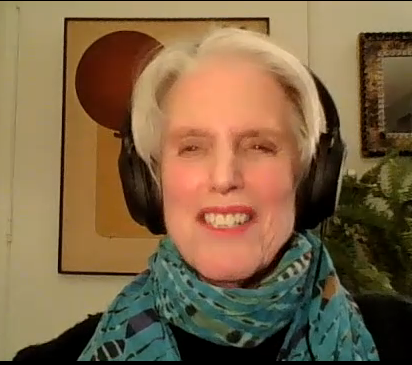Here are a few articles on the subject:
Psychology Today Forbes The Atlantic The other good thing about exposing yourself on paper is your readers will admire your honesty. The writer who is not perfect is human. Someone with whom a reader can honestly identify. When I wrote my first book, Pawprints, I was quite pleased when friends remarked, "I can hear you talking as I read these stories." But I was actually surprised and a bit uncomfortable myself when people added, "I know so much more about you now," with a kind of knowing look. Ouch! But, the fact that I did reveal personal vignettes did much more for me than to me. Pawprints became an Amazon.com bestseller, and developed into a literacy program. And readers liked me! Now, does this mean you have to tell everything? No. If you will really hurt yourself or someone else, consider whether or not it is such an important point that you must reveal all. If so, the other people who are afraid they might be tarnished by association, or whose secret you are telling, will just have to get over it. This is particularly true within families. There are always skeletons and everyone is afraid of letting them jump into the light. But, as the research shows, these secrets are harmful to everyone, and it really may wind up helping all involved if the cat is let out of the bag. Thinking over your life for your memoir will bring to mind these secrets. And while it is a good thing to put some into print, there are valid reasons when other avenues at clearing the air may be a better choice. A woman who came to me about a project had experienced the family secret issue. A relative was trying to urge her to have sex with his friends, who were strangers to her. Why? Probably because he thought "free love" was healthy. She was so offended, and upset, that she chose to ostracize him, and never re-opened the door to the man again. The rest of the family knew nothing of this. They were all very upset with her. In talking about her project, we discussed this issue in depth. The conclusion -- it would be too hurtful for the family to include the episode and its aftermath in her memoir, and it was not critical to the portion of her life about which she was writing. But it was important to talk to others in the family once he had died. They needed to know why she had seemed so ill mannered, to say the least. The result? Suddenly, the family understood her behavior. They wound up embracing her warmly. Family bonds were re-attached. Another time you might opt not to include such a secret is if you might wind up getting hurt, for example kneecapped, as one lady who came to me for advice might have. In this case I also advised not to reveal the secrets.These were not about the author, but about characters she would include. The woman with the story had been married to a man who was famous in a field that was riddled with mafia. It would have been very dangerous for her to expose their behavior. On a related note, is it OK to write stories about celebrities you might have encountered? In general, the rule of thumb is, if it really happened, it is not libel (“slander” refers to telling the story orally) and you can write it. Celebrities are also considered public figures and as such are “fair game” for irony, or for stories that involve something you witnessed – as long as it is not degrading or defamatory. They are not, though, fair game for mean spirited, untrue stories. Again, if it is not true, you better watch out. Here are two resources online to check out the legalities involved. Findlaw.com Nolo
9 Comments
4/24/2016 02:27:33 pm
I never think when I write. You cannot do two things at once and both good. May be it is right? Turn off the inner critic and surrender to the story. What do you think?
Reply
6/12/2016 02:42:33 am
I think that your wish to express yourself on paper is pretty natural and very peculiar for human beings. I understand your struggles and worries.
Reply
9/4/2016 10:58:14 pm
I like reading your article, you are very sincere person, you share very easily with your emotions.
Reply
9/8/2017 05:28:39 am
This is really great work. Thank you for sharing such a useful information here in the blog.
Reply
12/20/2023 04:02:52 pm
This post resonates with me on so many levels. Writing a memoir can be both a therapeutic and intimidating experience. The idea of exposing oneself on paper is both daunting and liberating. It's true that our imperfections and mistakes make us human, relatable, and, dare I say, more likable as authors.
Reply
12/21/2023 06:56:01 pm
This post by Coach Ina is a great reminder of the power of honesty in memoir writing. It's natural to want to conceal our embarrassing moments or mistakes, but as Ina rightly points out, sharing those stories can be incredibly cathartic. Memoirs are not just about showcasing our successes; they're about the journey, complete with its ups and downs.
Reply
12/26/2023 11:29:32 pm
I completely agree with Coach Ina on the importance of revealing secrets in memoir writing. It takes a lot of courage to share those embarrassing moments and failures, but it's often those very experiences that make a memoir relatable and compelling.
Reply
5/18/2024 01:29:19 pm
These articles are the best and you are good to share the detail. We can find the best ideas that provide us the right solution.
Reply
Leave a Reply. |
By Ina
Hi, and glad to see you! My blog features memoir and fiction writing tips for you out there aiming to create enchanting memoirs and flights of fancy of your own; new "Pawprints," those close encounters of the furry kind, by moi; and topical comments as they bang on my head to be written. Plus: videos featuring talented authors I'm privileged to work with, reading live, Coming...your life stories, here. Got one you want to share? Use our form to be considered. Archives
September 2022
Categories
All
|
Website, stories, videos, photos, audios and tools © 2010 Ina Hillebrandt ꟾ Updated regularly
Revised 2021. Updated March 2022.
Some stories copyright by individual authors. Please do not share any material as is, or altered, re-packaged in any way. Short excerpts for review purposes only permitted. For other reprint information, please contact us.


 RSS Feed
RSS Feed
